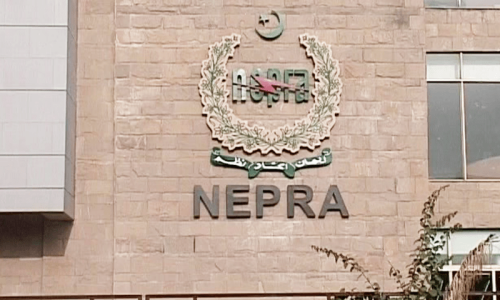ISLAMABAD, Aug 9: The government plans to soon finalise a strategy to attract $150 billion investment for additional 143,310MW power generation by 2030.
The government is said to have directed the Planning Commission to prepare proposals to have $150 billion investment ($50 billion by the public sector and $100 billion by the private sector) having specific targets and plans to be given to the ministries and other agencies concerned.
The Commission in this behalf has completed its initial work under Energy Security Action Plan 2005-2030 in line with the recommendations contained in the mid-term review of the Medium Term Development Framework (MTDF) conducted in May this year.
It has been decided that there will be maximum utilisation of indigenous natural resources in oil & gas, power, nuclear, alternative energy and energy conservation.
In the oil and gas, there will be fast-track work to maximise exploration which included a number of exploratory and development wells to be drilled to have at least 150-200 wells per year. Expediting development of deeper reserves of Sui, Tal (Kohat), construction of any gas pipeline from Iran, Qatar and Turkmenistan, increasing strategic oil reserves to 45 days from the present level of 20 days, managing gas from dormant fields to be utilised as CNG for supply to far-flung areas, establishing economic size refineries (coastal at Khalifa point preferably as joint venture with China and at Kohat to refine crude from Tal field) and the coal share to be increased to at least 19 per cent (about 20,000MW) by 2030 and 50 per cent by 2050) have also been included in the plan.
In the power sector, there will be an accelerated investigation on Skardu/Katzara for its construction while Wapda will undertake a study to maximising hydel power generation from all rivers particularly mighty rivers. The programme also includes early undertaking of small- and medium-scale dams like Thakot (500MW) on fact-track basis by encouraging joint venture of Wapda, the NWFP government and the private parties. It has been proposed by the Planning Commission to take a decision immediately on the mode of financing for execution of Neelum-Jhelum power project. For double-digit growth of large-scale manufacturing, Wapda, KESC and Private Power Infrastructure Board (PPIB) were urged to respond to the challenge of undertaking and completing oil and gas projects on fast-track basis to meet the additional demand.
The ministry of petroleum and natural resources had been directed to encourage public-private partnership on Build, Operate and Transfer programme for power generation on canals. It would also be explored to bring off-season sugar mills to generate 2,000MW on national grid system for which feasibility study will be conducted. There will be more emphasis on demand management for optimal utilisation of power.
Pakistan Atomic Energy Commission was expected to increase its capacity from 400MW to 8800MW by 2030, while there will be development of wind and solar energy to have at least 5 per cent of total national power generation capacity to be met through these resources to achieve 9700MW by 2030.
Similarly, necessary laws will be enacted and enforcement be ensured for energy efficient building designs. “But we are still awaiting a law to be made by the law ministry for energy conservation and implementation,” a senior government official regretted.
Energy shortages are defined as a major bottlenecks in the growth of the commodity producing and services sector which is facing the problems of rising prices, slow expansion in supply relative to demand resulting in energy shortages on the one hand and high energy losses on the other.
The objectives are to enhance the production and exploration of oil, gas, coal and increasing the share of coal and alternative energy in the overall energy mix.
















































Dear visitor, the comments section is undergoing an overhaul and will return soon.